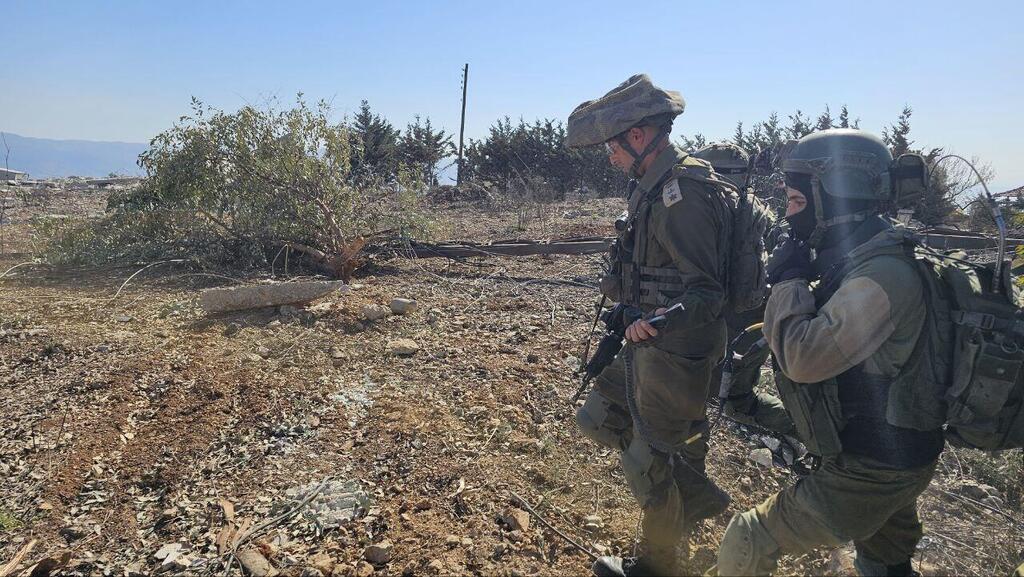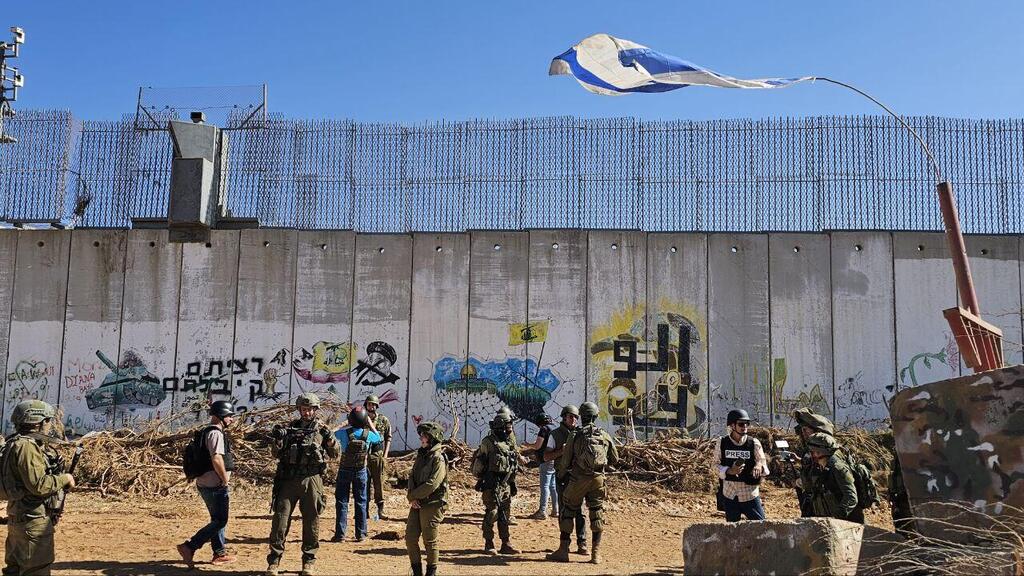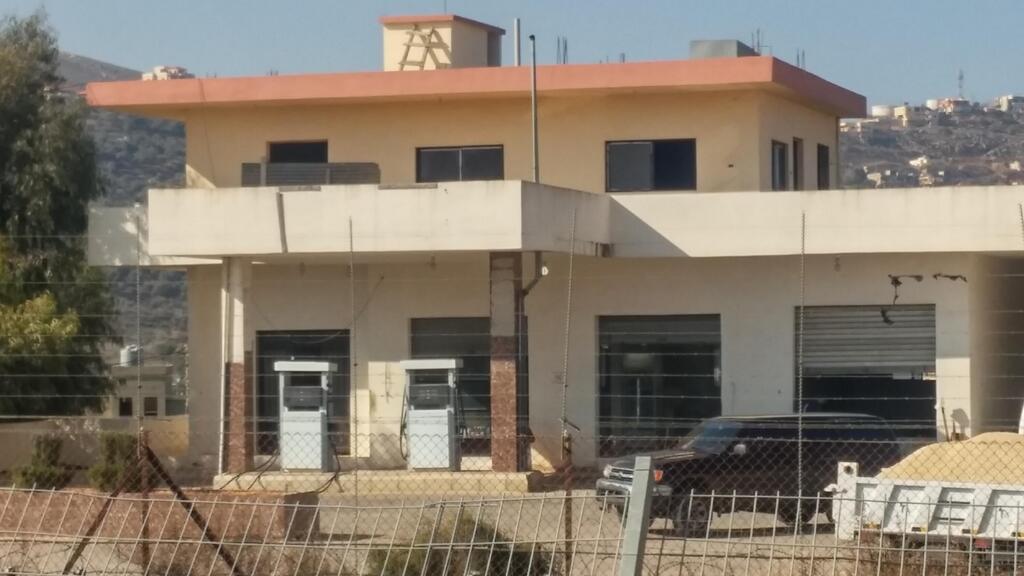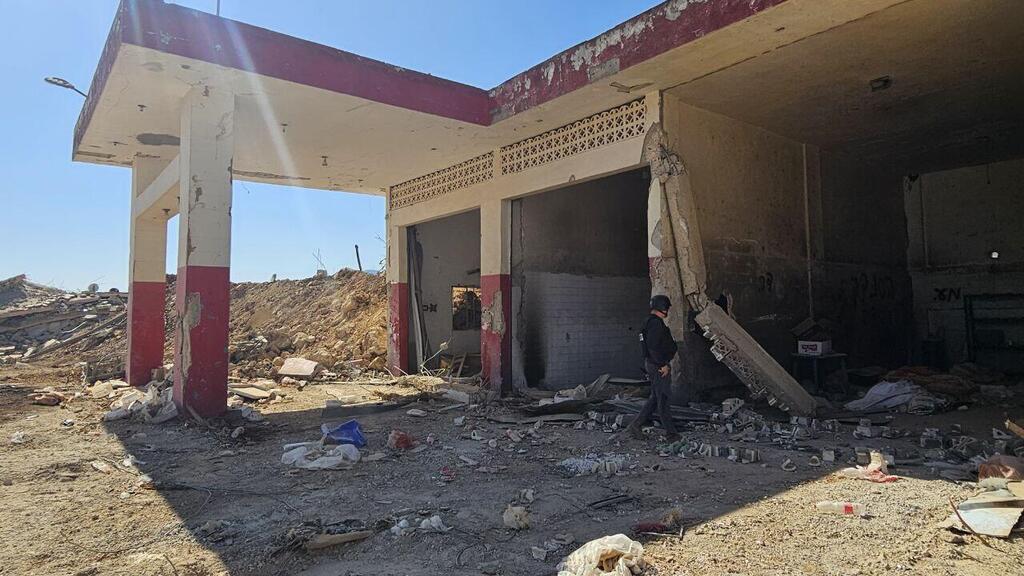Getting your Trinity Audio player ready...
After nearly a year of war, the once-thriving village of Metula now stands abandoned and battered. Most of its homes lie in ruins from repeated Hezbollah strikes. Through its walls, the extensive destruction and devastation of Hezbollah’s terror infrastructure in the neighboring Lebanese village of Kila are clearly visible, the result of intense operations by Israel’s 769th Brigade of the 91st Division.
In recent weeks, following the government’s authorization for the IDF to advance into southern Lebanon, bulldozers have been working tirelessly within three kilometers of the border to dismantle weapons caches and demolish terror strongholds. As tunnels are unearthed, the scale of Hezbollah's terror network, meant to facilitate a full-scale invasion of northern Israel, becomes clearer.
5 View gallery


Kila village after the IDF destroyed Hezbollah infrastructures in it
(Photo: Yair Kraus)
For months, both government and military leaders awaited a diplomatic resolution with Hezbollah to withdraw its forces. However, with Hezbollah’s persistent attacks on northern communities, Israel has had no choice but to act, leading to the evacuation of thousands of residents from villages along the Lebanese border. On Monday alone, Metula endured 12 more rocket barrages.
“Kila represents everything Hezbollah had planned,” says Colonel Avraham Marciano, commander of the 769th Brigade, after crossing into Lebanese territory. From this vantage point, Marciano explains, Hezbollah fighters once targeted the northern Galilee and even the Hula Valley.
Standing at a lookout where, last January, Hezbollah terrorists launched an anti-tank missile that struck the Ayalon family’s living room in Kibbutz Kfar Yuval, killing Mira Ayalon and her son Barak as they ate lunch, Marciano recounts the discovery of an underground network for surveillance and intelligence gathering aimed at coordinating attacks on Israel. "Today, we're settling the score and dismantling Hezbollah’s infrastructure," Marciano declared.
In recent days, IDF soldiers have left their mark on the Lebanese side of the border wall, painting over Hezbollah graffiti honoring the slain leader Hassan Nasrallah. These walls, initially erected as a defensive barrier to delay enemy advances until reinforcements could arrive, were a response to Hezbollah’s longstanding threat. Standing mere meters from Metula's orchards, near a Hezbollah-owned gas station, Marciano points to a tunnel that had been primed for attack but did not breach Israel’s border.
"Fifty meters from here, inside those ruins, we discovered a tunnel entrance where they planned their invasion route. It’s a complex hundreds of meters long. They intended to move beneath the main street of Kila, regroup, and launch an assault from there," he says. Hezbollah had planned for over 1,000 fighters from Kila to spearhead the assault on the eastern Galilee.
As part of ongoing operations, IDF forces are systematically neutralizing these threats, both above and below ground. David, one of the soldiers, participated in locating the tunnel. "We found it still equipped with digging tools. Nearly every building we entered contained terror infrastructure: shafts, tunnels, weapons, ammunition, combat vests, and medical supplies," he said.
Marciano estimates that the brigade is about two-thirds of the way through its mission. "I believe it will take just a few more weeks to completely eliminate Hezbollah’s invasion capabilities," he says. However, the thunder of artillery and the wail of sirens in Metula signal that the task of restoring security to the region is far from over.
The sight of Kila’s gas station reminds me of years spent observing locals living under Hezbollah’s influence on the other side of the border fence, where terrorists documented and harassed our movements. Villagers from Kila often threw stones or waved hostile gestures at us and shone laser pointers into Metula’s homes. Now, I find myself on the Lebanese side, amid the ruins of that very gas station.
Dust covers the ground, and in the rubble, I spot a receipt dated September 2023 from the gas station. Apparently, a Ferrari owner had filled up with 80 liters of gas, bought five liters of motor oil, and paid $450 for it all, including a car wash.
Returning to Israel, I meet David Azulai, head of the Metula Local Council, who surveys the view of Kila from across the border. Over 60% of homes in Metula have been destroyed by Hezbollah rockets, he says. Despite his admiration for the IDF’s work, he expresses concern that the ground operation might conclude prematurely. "It’s impressive, yes, but I have to think ahead," Azulai says. "What will happen a month from now when the army isn’t here? We’ve heard promises like this too many times.”
Azulai is deeply worried that political leaders, especially Prime Minister Benjamin Netanyahu, might halt the mission without fully restoring security to the region. He is firmly against a negotiated settlement to end the war.
“There’s no need for an agreement that binds us to the other side,” he argues. “We need to set the conditions and make it clear that any future violation will lead to an even more decisive response.” Azulai hopes the shattered villages on the Lebanese side will remain so, as a stark reminder to Lebanon of the cost of provoking Israel. “We need a clear buffer zone from here to the Litani River.”
IDF taking out infrastructure in Kila village
(Video: IDF Spokesperson's Unit)
The IDF now faces the task of proving to Metula and its surrounding communities that they are safe. "We’re only halfway through this journey. I’m far from feeling secure here," says Riki Gino, a native of the village and the council’s CEO. Like her parents’ home, her house was destroyed by Hezbollah rockets. “I need to know what comes next. We need visible assurance that it’s safe to live here again."
Get the Ynetnews app on your smartphone:










